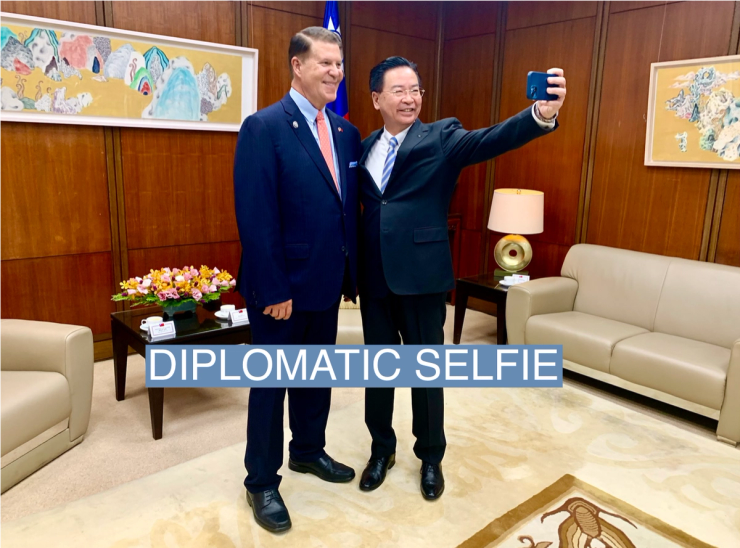The Scene
After years as a tech executive, Keith Krach felt like he was speaking a different language when he came to Washington as Under Secretary of State for Economic Growth in the Donald Trump administration. Now he aims to bridge the gap between Silicon Valley, D.C., and policymakers in Europe and elsewhere with an Institute for Tech Diplomacy that he started at Purdue University.
The goal of the former CEO of DocuSign and ex-chair of Angie’s List is to ensure technology advances freedom, which he says means taking on China and calling out tech companies and members of Congress alike.
It also means strengthening Taiwan, where he recently met President Tsai Ing-wen and Foreign Minister Joseph Wu. Krach talks about his trip and other issues in an edited conversation below.
The View From Keith Krach
Q: What’s the biggest worry from a business and tech perspective that you heard in Taiwan?
A: The overarching objective of the Taiwanese business and tech community is to gain greater access to STEM talent, resolve economic barriers, like double taxation, and receive greater support for Taiwan’s overall international standing. That’s exactly the focus of the Krach Institute for Tech Diplomacy’s newly-launched Taiwan Center for Innovation and Prosperity.
Q: What are the unintended consequences of a tech decoupling from China?
A: It’s not about decoupling from China. It’s about taking off our rose-colored glasses and seeing the Chinese Communist Party for what it is, not what we hoped it would be.
Q: You worked in both the tech sector and for the U.S. government. How do you see the White House executive order on Chinese investments wearing those hats?
A: It’s the right thing to do. We can’t provide our top foreign adversary access to our most sophisticated technology. Plus, tech companies have an important role to play in strengthening U.S. national security and advancing the freedom which enables them to thrive. The key will be in implementation of the EO, keeping exemptions to a minimum. We can’t win on paper but lose in real life.
Q: Are you worried the US will lose the war for AI talent when it comes to Chinese experts?
A: Not at all. American leadership in tech innovation is a testament to what a free society can accomplish. The bigger point is AI, like other high tech, isn’t about tech. It’s about TRUST. AI can empower human progress or be weaponized against us.
There are some voices urging us to slow down. I don’t think we should tie our own hands by limiting the development of AI and high tech. China is not slowing down, so if we don’t develop AI responsibly, China will do it irresponsibly. That’s the real danger.
Q: Is there still a large disconnect between Silicon Valley and DC?
A: What I discovered during my public service as the Under Secretary of State was that Silicon Valley tech entrepreneurs and Washington politicians don’t speak the same language. They may as well be from different planets.
To lawmakers, terms like 5G, AI, EV, quantum are meaningless. Until we brought the TSMC fab to the U.S. and architected the CHIPS and Science Act, “chips” were something you ate.
To the startup crowd, techies, and engineers, foreign policy is really foreign. There is not much of an appreciation for how much their work impacts national security. If you’ve ever watched Congressional hearings about high tech, they’re entertaining and scary at the same time.


